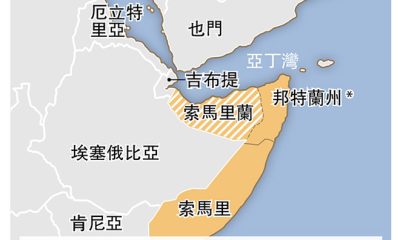觀點
Emil Avdaliani:Iran and Israel: The Retrenched versus The Dominant

【明報文章】On June 13 Israel bombed military targets all across Iran’s territory. Those included the country’s nuclear sites too triggering a major crisis in the Middle East with the potential to draw in global powers.
A major reason behind Israel’s attack on Iran was a rare historic moment the Jewish state has found itself in. Iran’s posture across the Middle East has been badly hurt. Its Axis of Resistance – a network of non-state militarized groupings – has been weakened and with the Assad dynasty gone, Iran has lost a direct land connection with the Mediterranean world – last time Iran enjoyed this kind of access was in early 7th century AD when the Sasanians invaded the Eastern Roman Empire. Then in early 2025 Donald Trump returned to power and the United States seemed poised to pressure Iran into a new nuclear deal or face military destruction of its developing nuclear capabilities. To this should be added an economic pressure exerted by Washington and Iran’s unfavorable economic situation.
In short, Israel has never witnessed such an opportune moment in the last decades when it could radically change the balance of power in its favor by destroying Iran’s military and nuclear capabilities. And it could not miss this chance despite well expected protestations and criticism from around the world. Nor is Iran expected to harm Israel in a meaningful way given that the latter’s capabilities are far superior. There is also the United States, which, though tried to distance itself from the showdown, is nevertheless seen as a staunch Israeli ally. Should the Jewish state face a major threat to its statehood, Washington will throw all its support behind Tel-Aviv.
There is also another component which prompted Israel’s decisive move against Iran. 2023 was a defining moment in the history of the modern Middle East. The Hamas’ attack on Israel and the following full scale military campaign carried out by the Israelis in Gaza and Iran’s allies such as Hezbollah and Houthis transformed the region. To this should be added the fall of the Assad dynasty and intermittent bombing by Israel of Iran’s territory in 2024. Two major waves of attacks that year dissipated the existing red lines that Israel and the Islamic Republic would compete but never attack each other directly. In many ways, it was Israel that demolished the unwritten rules. Seen from a wider perspective, however, it was a fundamental shift in the perception of the Iranian threat among the Arab states that mattered most. Though Saudi Arabia and others considered the Islamic Republic as a primary threat since early 2010s in March 2023 their approach changed and rapprochement with Tehran has become a new norm. Normalization with the Saudis – brokered by the Chinese – was a major event. Closer ties with Saudi kingdom still continue evidenced by high-level bilateral meetings and talks on boosting commercial ties. Yet, some Arab countries began their tracks of normalization with Iran well before that date.
Israel seeing how the geopolitical picture is gradually turning in Iran’s favor had no other choice but to act. Gradual normalization of relations between Iran and the Arab countries was thus a critical incentive. Indeed, the Arab countries, especially the Persian Gulf countries, has grown increasingly hostile to the idea of a military solution to Iran’s nuclear ambitions. As time went on, the opposition has only expanded, and the Arab states began openly expressing their discontent to the United States. The latter too in the past few months seemed to tilt toward reaching a possible (interim) nuclear agreement with Iran. Faced with such a shifting geopolitical landscape, Israel had to seize the moment.
Eventually the formula – no nuclear deal, no war – that Iran has pursued for decades, did not work. The state of suspense which was expected to keep Iran’s enemies at bay failed to provide a longer-term security. With the failure of its “nuclear threshold threat” tactics as well as the downgrading of the Axis of Resistance, the Islamic Republic’s entire edifice of forward defense strategy has been in shambles. Now a new defense vision needs to be produced, and Iran has little time to pull it off since the Israeli pressure will remain a constant for a foreseeable future. Nor are Russia or other big countries expected to support Iran militarily. The choice for Tehran is therefore clear: either complete destruction of the nuclear capabilities or doubled down efforts to develop nuclear capabilities amid constant Israeli military pressure.
Emil Avdaliani is a professor of international relations at the European University in Tbilisi, Georgia, and a scholar of Silk Roads. He can be reached on Twitter/X at @emilavdaliani.
[Emil Avdaliani]





